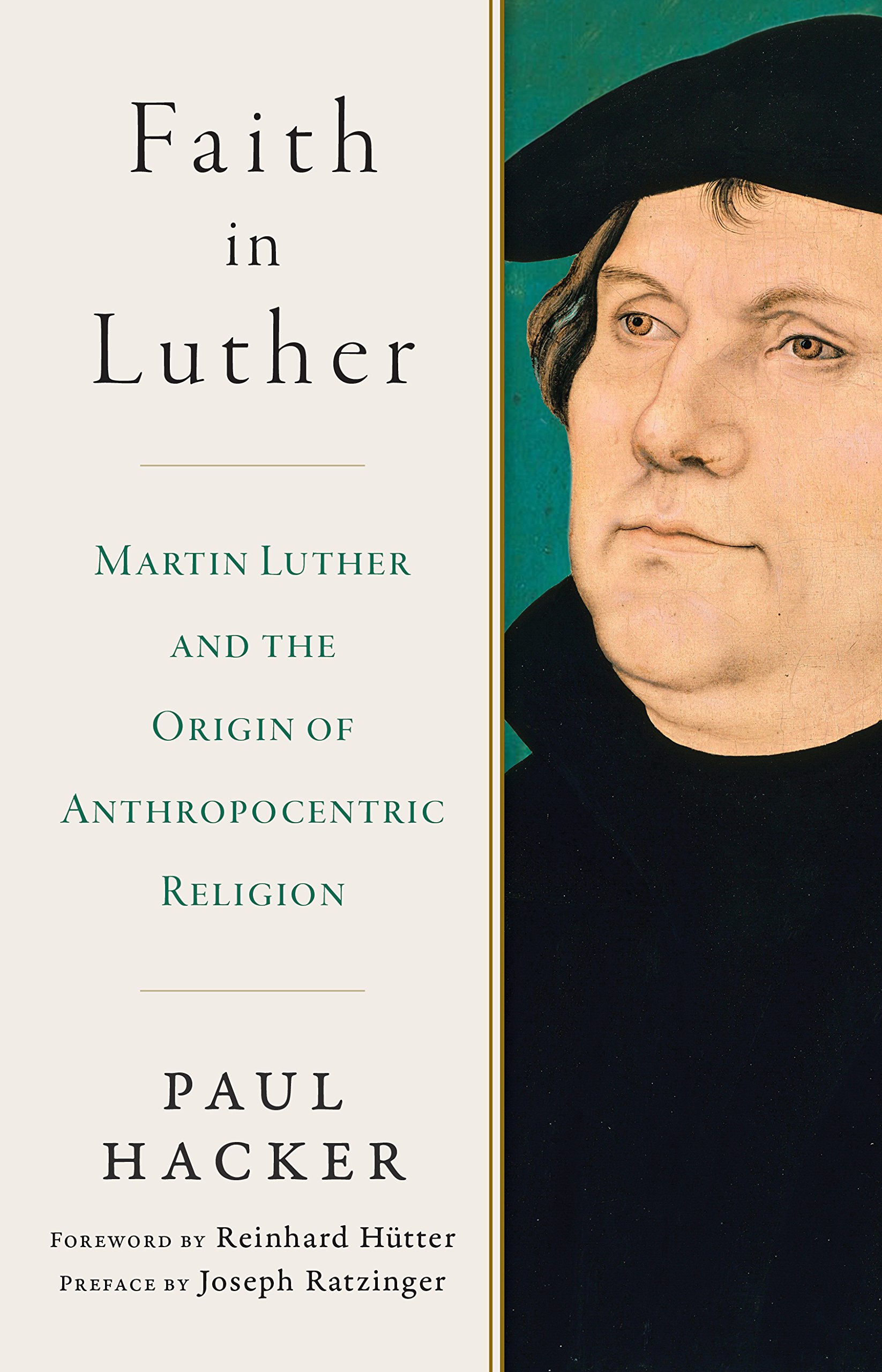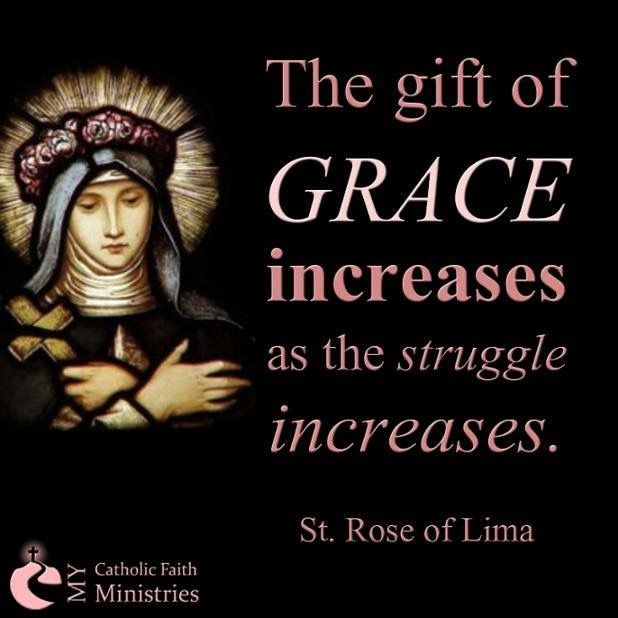
-by James Akin (Jimmy Akin is an internationally known author and speaker. As a senior apologist, he has more than twenty years of experience defending and explaining the Catholic faith. Jimmy is a convert to Catholicism and has an extensive background in the Bible, theology, the Church Fathers, philosophy, canon law, and liturgy.)
“Another reason why Protestants need to accept the language of objective guilt and innocence is that the Bible itself uses this kind of language. It often speaks of guilt and innocence in terms of objective properties, such as colors or cleanliness. Scripture speaks of our sins being “crimson like scarlet” (Isaiah 1:18), and the Psalmist says “wash me with hyssop and I shall be whiter than snow.” (Psalm 51:7). It is also the kind of righteousness Scripture has in mind when it talks about our sins making us “unclean” or “filthy” and our forgiveness making us “pure” and “clean” before God. In these passages, guilt and innocence are conceived of as objectively real properties that cling to us just like colors and cleanliness.
So there is no reason why Protestants need to object to the metaphysical understanding of righteousness that Catholics use. In fact, many Protestants are uncomfortable with using purely legal language for justification and state quite adamantly that justification is not just a legal fiction. That God actually “constitutes” us in righteousness. The only difference on this point is that they do not use the metaphysical understanding of righteousness in order to explain what constituting in righteousness means. But there is no reason why they cannot do so and, as we have seen, there are positive reasons why they should. Thus for example Protestant authors such as Norman Geisler, who are more familiar with the principles of ontology, are willing to talk about actual righteousness being given in justification. Geisler, for example, uses the helpful terminology of speaking of legal righteousness as “extrinsic” righteousness and actual righteousness as “intrinsic righteousness.”
Catholics, for their part, have no trouble saying that a person is legally righteous before God when they are justified. If God constitutes a person in righteousness. Furthermore, Catholics don’t need to have any problem with saying that our righteousness is brought about by a decree of God. The Catholic can be perfectly happy saying that when we are justified God declares us righteous and his declaration bring about what it says. He declares us righteous, and so our guilt is taken away and our righteousness is restored.
This is something for which there is good Biblical support for. God’s word is efficacious. It accomplishes what it says. In Genesis 1 God spoke and his word brought about the things that he spoke. He said, “Let there be light,” and there was light. He said, “Let the waters be divided from each other so that dry land may appear,” and they did. He said, “Let the waters teem with living creatures,” and they did. Furthermore, in Isaiah 55:11, God said, “[S]o shall my word be that goes forth from my mouth; it shall not return to me empty, but it shall accomplish that which I purpose, and prosper in the thing for which I sent it” (RSV).
God may sometimes choose to give graces which are incomplete, which do not of themselves bring about their target goal (see the essay, “Resisting and Cooperating With God“), but when God declares something to be so, it is so. God’s word is efficacious; it brings about what it says. So when God declares us righteous, we actually become righteous: we have our guilt taken away and our purity before God restored. This is true even if the righteousness that is being restored is the original righteousness which Adam lost for the whole human race.
Thus in Catholic theology the term “justification” is used to refer to the event by which we are given ontological or real righteousness. Coextensive with this, of course, is legal righteousness, for God will not treat anyone as unrighteous who is really righteous. Similarly, God will not treat as righteous anyone who is really unrighteous. As God declares in Scripture, ‘I will not justify the wicked” (Ex. 23:7)—His holiness prevents it. Thus for God to make someone legally righteous, He also must make them actually righteous; He must constitute them in righteousness. And for God to make someone actually righteous, He must correspondingly make them legally righteous.
So a Catholic need have no problems with the forensic/declaratory aspects of justification. God does indeed declare us righteous, and that is nothing with which a Catholic needs to quarrel. A Catholic also does not need to quarrel about which kind of righteousness is the cause and which is the effect, whether God declares a person legally righteous and that, by the miraculous creative power of his word, makes the person actually righteous, or whether God makes the person actually righteous and therefore declares the person legally righteous. This is a matter of indifference in Catholic theology.
Furthermore, when Catholics talk about progressive justification/sanctification, they are again thinking of God making us ontologically righteous. This is almost totally missed by Protestants when they compare the Catholic view of progressive justification to the Protestant idea of sanctification, which is in turn part of the basis on which they say Catholics confuse justification with sanctification. No, Catholics don’t. They recognize that growth in personal holiness (behavioral righteousness) is a separate and subsequent event to initial justification. The confusion is on the part of the Protestant who thinks Catholics are talking about growth in behavioral righteousness when they talk about progressive justification/sanctification. They aren’t. They’re talking about growth in actual righteousness.
This is sometimes a difficult concept for Protestants to grasp since they have heard so many sermons about righteousness being an all or nothing thing that they have trouble understanding the concept of how righteousness can grow. This is one of the things that keeps them boxed into a two-fold understanding of righteousness. However, the problem is solved when one grasps the concept of actual righteousness, which is not a one-dimensional but a two-dimensional concept.
The first dimension of actual righteousness is its level of purity, which we might refer to as the quality of the righteousness. When one becomes a Christian and is justified, one receives totally pure actual righteousness. There is no admixture of sin or unrighteousness in the righteousness God gives one. Thus in this sense one is made just as righteous as Christ, because the level of purity in Christ’s righteousness and ours is the same.
However, from this point of initial justification one’s righteousness begins to grow during the course of the Christian life. This is the hard part for Protestants to understand since they will ask, “But if we are already made totally pure, how can our righteousness grow from there?” The answer is where the second dimension of actual righteousness comes in. Righteousness does not continue to grow in the first dimension; once total purity has been received, it is not possible for righteousness to grow in that dimension. One cannot go beyond total purity in the quality of righteousness, so righteousness grows in its second dimension—its quantity.
Even though when we first came to God we were made totally righteous in the sense that we became totally pure, we have not yet done any good works, for these are made possible only by God’s grace after justification. The righteousness God have given us may be totally perfect in quality but it is not yet totally perfect in quantity. We may be just as righteous as Christ in the sense that the righteousness God has given us is just as pure as Christ’s, but it is not as extensive as Christ’s because we have not done as many good works as Christ. The tiny little good works we do in our lives—works wrought only by the grace God himself gives us—in no way compare to the huge, overwhelming, infinite good works of Christ, such as his death on the cross. So while we may have just as much righteousness as Christ in terms of its quality (total purity, by God’s grace), we do not have just as much righteousness as Christ in terms of its quantity.
It is in terms of the quantity of righteousness that rewards are given in heaven, and thus because Christ has a greater quantity of righteousness than we do, he also has a correspondingly greater reward. As Paul says: “[B]eing found in appearance as a man, he humbled himself and became obedient to death—even death on a cross! Therefore God exalted him to the highest place and gave him the name that is above every name, that at the name of Jesus every knee should bow, in heaven and on earth and under the earth” (Philippians 2:8-10). And as the book of Hebrews declares: “Jesus, the author and perfecter of our faith, . . . for the joy set before him endured the cross, scorning its shame, and sat down at the right hand of the throne of God” (Hebrews 12:2). And so “in everything he [has] the supremacy” (Col. 1:18).
This understanding of the three kinds of righteousness—legal, actual, and behavioral[4]—enables us to look back at the reasoning of the Protestant apologist we mentioned earlier and see where it goes wrong. One will recall that the apologist reasoned: “Catholics believe we are made righteous when we are initially justified, but they do not believe we are made legally righteous, so they must mean that we are made behaviorally righteous at initial justification.”
Obviously this is false since the Catholic is not boxed into a two-fold view of righteousness. It is natural for the Protestant to think this, since his own thoughts on righteousness are normally limited to legal and behavioral, but in fact that Catholic believes that in justification we are given actual righteousness (and in conjunction with it, legal righteousness, for the two are co-extensive, as well as being given the first stirrings of behavioral righteousness through regeneration). The apologist then reasoned: “They also believe that we grow in righteousness during progressive justification. This has to be growth in behavioral righteousness, because legal righteousness before God cannot grow; you are either legally righteous or you are not. Thus Catholics must mean by ‘progressive justification’ what I mean by ‘sanctification’—that is, growth in behavioral righteousness.”
This is also false because in progressive justification Catholics are again talking about actual righteousness, and actual righteousness does grow in quantity though not in quality.
“However, if it is possible to grow in behavioral righteousness after initial justification, that must mean the Catholic does not believe he was made completely righteous in initial justification.”
This is false because the Catholic does believe we are made completely righteous in terms of the quality of our righteousness (both actually and, consequently, legally) at justification. The growth that occurs later is a growth of quantity, not quality.
“Thus Catholics must believe they are made partially behaviorally righteous during initial justification and then they grow in righteousness during progressive justification, which I call sanctification. Thus they confuse justification and sanctification.”
If Catholics did believe initial justification is to be identified as the event where we are made partially behaviorally righteous, followed by later growth in behavioral righteousness, then they would indeed be confusing justification with the sanctification (as Protestants use the term “sanctification”), because this would merely make justification the first stage of behavioral sanctification. However, while there is a gift of partial behavioral righteousness at the time of justification (because of regeneration, which makes us spiritually alive and no longer dead in our sins, so that the power of sin is broken in our lives and we are no longer enslaved to it, though we do still have to battle it, cf. Romans 6), this gift of partial behavioral righteousness is not what justification consists in. In Catholic language, justification consists in God making us actually righteous (and 100% righteous in terms of quality), which is either brought about by God’s declaring us legally righteous or which brings about this legal declaration.
The confusion is thus not on the part of the Catholic. The Catholic is not confusing justification with sanctification—not confusing our initial reception by God and the growth in behavioral righteousness which follows—the confusion is on the part of the Protestant apologist who has not studied Catholic theology properly (and who probably has never read Catholic sources or has only scanned them looking for “ammo” to use against Catholics, rather than trying to enter into the Catholic thought-world and understand what Catholics really mean rather than what he has been told in sermons and lectures and radio program they mean), and who has thus confused his own understanding of sanctification with the Catholic understanding of both justification and sanctification.
Unfortunately, the misunderstanding the Protestant apologist has concerning these matters leads him into other confusions as well. For example, I have talked to, debated, and read numerous Protestant apologists who, because they are confused about the growth of righteousness, ask questions like, “If Catholics believe we are only made partially righteous in justification and you do good works after this to make this righteousness grow, how do you know when you have done enough good works to go to heaven? How many good works do you have to do?”
Protestants who say this at least have a leg up on those who think Catholics believe we must do good works in order to become justified—a position which was explicitly condemned at Trent, which taught “nothing that precedes justification, whether faith or works, merits the grace of justification” (Decree on Justification 8).Catholic theology teaches we do not do good works in order to be justified, but that we are justified in order to do good works, as Paul says: “[W]e are his workmanship, created in Christ Jesus for good works, which God prepared beforehand, that we should walk in them” (Ephesians 2:10). Justification is the cause, not the consequence, of good works.
However, these Protestants are still confused about the fact that Catholics do not teach we are made only partially righteous in justification. The Church teaches that we are made totally righteous—we receive 100% pure righteousness—in justification. Thus Trent declares: “[I]n those who are born again God hates nothing, because there is no condemnation to those who are truly buried together with Christ by baptism unto death . . . but, putting off the old man and putting on the new one who is created according to God, are made innocent, immaculate, pure, guiltless and beloved of God, heirs indeed of God, joint heirs with Christ; so that there is nothing whatever to hinder their entrance into heaven” (Decree on Original Sin 5).
This one quote alone, even without the surrounding infrastructure of Catholic theology, from which the same thing could be deduced, shows how false, foolish, based on inadequate research, and motivated by a lack of comprehension of basic Catholic theological reasons is the whole, “How can you know when you have done enough?” line of argument. Nothing beyond one’s initial justification and regeneration is needed in order to go to heaven. In fact, this is one of the arguments in the Catholic case for infant baptism. As the Catechism of the Catholic Church states: “Since the earliest times, baptism has been administered to children, for it is a grace and a gift of God that does not presuppose any human merit; children are baptized in the faith of the Church. Entry into Christian life gives access to true freedom” (CCC 1282).
And also: “Born with a fallen human nature and tainted by original sin, children also have need of the new birth in Baptism to be freed from the power of darkness and brought into the realm of the freedom of the children of God . . . [And thus] The sheer gratuitousness of the grace of salvation is particularly manifest in infant baptism” (CCC 1250).
You don’t have to do a diddly-do-da thing after being justified by God in baptism in order to go to heaven. There is no magic level of works one needs to achieve in order to go to heaven. One is saved the moment one is initially justified. The only things one then does is good works because one loves God (the only kind which receive rewards) and not choose to cast out God’s grace by mortal sin. And even if one does cast it out by mortal sin, the only thing needed to get it back was the same thing needed to get it in the first place—repentance, faith, and sacrament, except the sacrament in this case is confession rather than baptism.
People try to make the Catholic message sound complex, but it’s really simple: “Repent, believe and be baptized; then if you commit mortal sin, repent, believe, and confess. Period.”—even a five year old child can understand that. All the exegesis and infrastructure of catholic soteriology I am giving in this work is strictly not necessary, any more than the exegesis and infrastructure found in Protestant soteriology books is either. From a Catholic perspective, repentance, faith, and baptism are just as easy to get across in an evangelistic appeal as they are for Protestants; in fact, they are easier since one doesn’t have to explain, “Okay, repentance and faith are necessary, but baptism isn’t, but it’s still really important, and so you need to do it, okay?” On the Catholic view, the message of the elements we have to preach is much simpler: Repent, believe, and in the saving waters, receive the righteousness of God.”
Love & technical precision for the sake of clarity & peace & love,
Matthew
[4] There is also a fourth kind of righteousness, historical righteousness, which is one’s track-record in terms of righteousness through history. Once historical righteousness has been lost through sin, it cannot be regained since God does not change history when he justifies us. This is something both Protestants and Catholics agree upon, and so this kind of righteousness we do not need to go into in this paper.
[5] Actual may be taken as the middle term between legal and behavioral, since behavioral unrighteous leads to actual unrighteousness, which leads to legal unrighteousness. Similarly, increased behavioral righteousness leads to increased actual righteousness, which leads to increased legal righteous (in the forensic recognition of the quantity of righteousness, though the quality of one’s legal righteousness remains unchanged).









